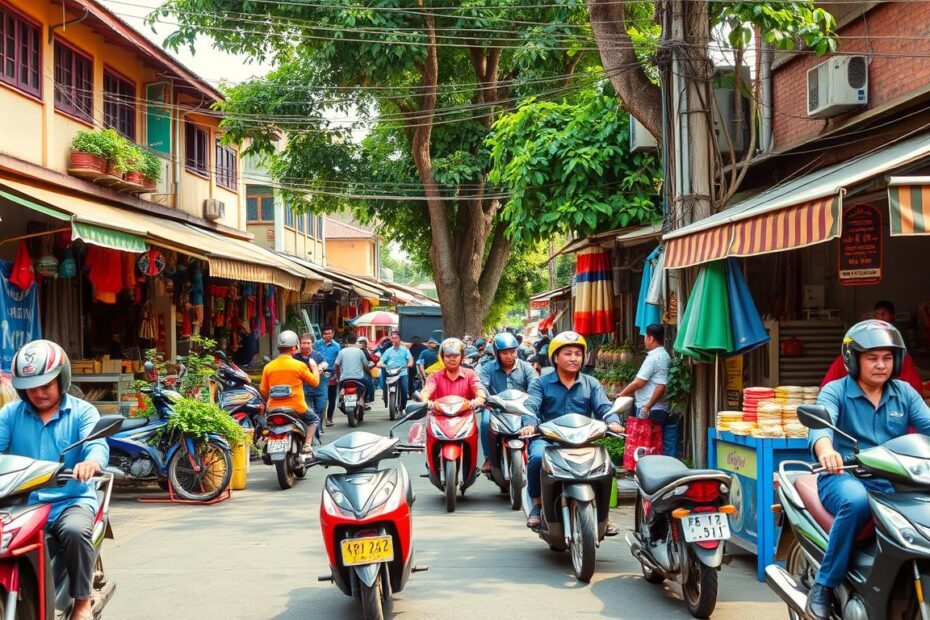Vietnam, a vibrant Southeast Asian country, has been steadily gaining attention as a top destination for expatriates and travelers alike. With its rich history, stunning landscapes, and rapidly growing economy, many people find themselves asking, ‘Is it better to live in Vietnam?’ This article aims to explore the various economic opportunities, cultural experiences, and social dynamics that influence this question, while also addressing the challenges one might face while living in this beautiful country.
Key Takeaways
- Vietnam offers diverse economic opportunities, particularly in emerging sectors like technology and tourism.
- Living in Vietnam provides rich cultural experiences with a vibrant social life and delicious cuisine.
- Expatriates may face language barriers and cultural adjustments when relocating to Vietnam.
- The cost of living in Vietnam is generally lower, making it an attractive option for many foreigners.
- Urban areas like Ho Chi Minh City and Hanoi offer a dynamic lifestyle but may also come with challenges such as traffic and pollution.
Economic Opportunities in Vietnam
Vietnam is emerging as a strong contender for expats and entrepreneurs alike, raising a crucial question: is it better to live in Vietnam? As the country continues to enjoy robust economic growth, driven by a youthful population and increasing foreign investment, it presents a variety of economic opportunities. From thriving sectors such as technology, manufacturing, and agriculture, to a burgeoning startup scene, Vietnam is becoming an attractive destination for those looking to expand their horizons. The cost of living in Vietnam remains relatively low, making it feasible for individuals and families to maintain a comfortable lifestyle while saving or investing their income. Moreover, the government’s commitment to enhancing infrastructure and business regulations further bolsters its appeal. With a vibrant culture, friendly locals, and an improving quality of life, it’s no wonder many are considering if it is better to live in Vietnam for personal and professional growth.
Cultural Experiences and Social Life
When considering whether is it better to live in Vietnam, one cannot overlook the rich tapestry of cultural experiences and vibrant social life that the country offers. Vietnam is not just a place to reside; it is a gateway to unique traditions, diverse festivals, and a plethora of social interactions that can enhance one’s quality of life. From the bustling markets of Ho Chi Minh City to the tranquil landscapes of Vietnam’s countryside, locals and expatriates alike can immerse themselves in the warm hospitality and community spirit that frequently characterize Vietnamese society. Vietnamese festivals, such as Tet (Lunar New Year) and Mid-Autumn Festival, showcase age-old traditions and create opportunities for social engagement, allowing newcomers to participate in the joy and cultural significance of the events. Additionally, with a growing expatriate community, visitors and new residents alike can build friendships and networks that ease the transition to life in Vietnam. The fusion of traditional values and modern influences fosters a dynamic social scene, making Vietnam not just a country to live in, but a place full of life, culture, and opportunities to connect with people from all walks of life.
‘The greatest danger in times of turbulence is not the turbulence; it is to act with yesterday’s logic.’ – Peter Drucker
Challenges of Living in Vietnam
Living in Vietnam comes with its distinct set of challenges, which are important to consider when asking ‘Is it better to live in Vietnam?’ One significant issue is the bustling traffic, particularly in major cities like Ho Chi Minh City and Hanoi, where the chaotic streets can be daunting for newcomers. Additionally, the pollution in urban areas can affect quality of life and raise health concerns. Another challenge is the language barrier, as English is not widely spoken outside of tourist areas, which can complicate day-to-day interactions and hinder social integration. Furthermore, while the cost of living is generally lower than in many Western countries, navigating the nuances of the local economy and securing sufficient employment can be challenging for expatriates. Each of these issues contributes to the overall question of whether it is better to live in Vietnam, highlighting the need for potential residents to weigh both the pros and cons carefully.


